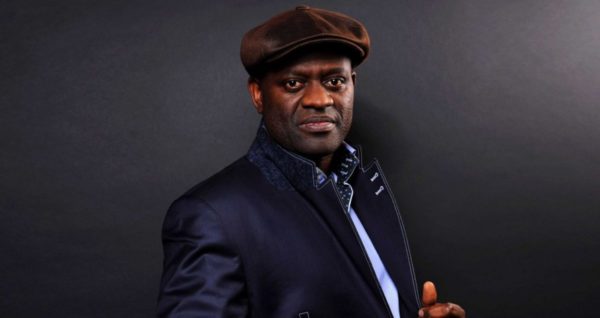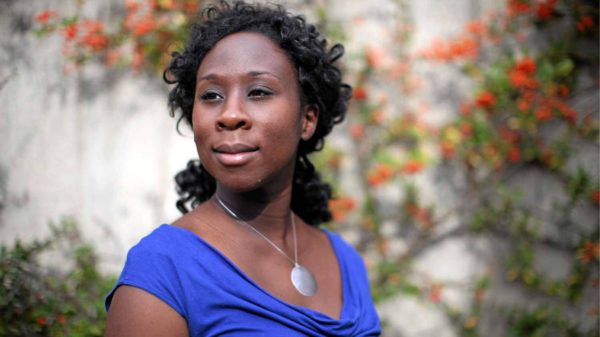
I got to know about the Man Booker Prize in 2008, from the front cover of a pirated copy of Chinua Achebe’s Anthills of the Savannah lying about in our home. On it, this white front cover of Achebe’s novel, is written in bold black uppercase letters: Booker Shortlist 1987. But it was not until 2009, after I read the novel and loved it, that my interest in the Booker Prize—whatever it was—was piqued. If this beautiful work, I wondered, could only make its shortlist, what then was the quality of the eventual winner? Over the next weeks and months, my interest in the prize shaded into respect, into awe. I checked the blurb of any book I read and loved to know if it had been shortlisted for the Booker Prize, and, when it had not, wondered at the beauty of the books that had displaced it. I did not know about the rules of the Prize—the many conditions a novel had to meet to be eligible, that most of those beloved books of mine had even been published years before the prize was established—so I assumed that just any work was eligible.
When I bought my first smartphone in 2010, the Booker Prize was one of the first things I Googled. I learned that it was now called the Man Booker Prize, after the sponsor. I read up on all the previous years of the Prize, including their special one-off editions—the Lost Booker Prize and the Booker of Bookers. I subscribed to their newsletter and each year I receive emails regarding the announcements of the nominees and winners for both the Man Booker International Prize and the Man Booker Prize. I looked forward to the International Prize, for novels translated from other languages into English, with more anticipation because of its wider geographical consideration. Because it is usually my first point of contact with writers, especially Africans, not writing in English.
It was my first point of contact with the name “Alain Mabanckou,” who was nominated for the Prize in 2015. The announcement said he was from the Republic of the Congo, so I Googled his name, and that of other Africans on the list, and read his profile on Wikipedia.
In 2016, I Googled another name, “Marie NDiaye,” amongst others on the longlist. I Googled it because, although the announcement had said the writer was French, I suspected the surname was African: Senegalese and Malian and Guinean footballers had all borne that same name in the past. And, true, Wikipedia confirmed my suspicion: NDiaye’s father was Senegalese. I wondered why the Man Booker people had deleted one half of someone’s identity. But I had misgivings: NDiaye was born in France, her mother was French, and there was nothing in her Wikipedia page to suggest that she had ever been in Senegal, indeed in any part of Africa. What if she only identified as French? I knew Igbo persons, or persons with Igbo parents, mostly born in non-Igbo parts of Nigeria, who did not care about or are ashamed of their Igbo origins. But do we reserve the right to choose or deny our identity, who we are?
When Alain Mabanckou was longlisted again for the Man Booker International Prize in 2017, for his eleventh novel Black Moses, he had become French in the announcement, only French. I remember how elated I was seeing Mabanckou’s name and then how my heart sank seeing just “France” enclosed in brackets beside the name. Why did I not feel this way when, in 2015, he was identified only as Congolese? Well, I do not remember if Wikipedia had said anything about his having dual citizenship. And in 2015, I had not been very attentive to identity and its many politics. Which is to say that what I understood to be the country one was from was one’s ancestors’ country of origin. Now, I know how difficult defining such words as “ancestor” and “origin” can prove. In any case, if Mabanckou was also French in 2015 then the Man Booker International Prize has some questions to answer for saying he was just Congolese. I tweeted the Man Booker Foundation about Mabanckou’s Congolese roots and how it should have been reflected in the announcement, but they never replied me. In the next couple of days, I half-hoped and looked out for news where Mabanckou would raise the issue and ultimately get them to budge, but saw no such news.

Recently, the longlist for the 2018 Man Booker Prize, for novels written originally in English, was announced. I made no effort to remark any new name because none was African—at least according to the announcement. Shortly afterwards, I was surprised to receive an email notification of a post on Brittle Paper which had “Ghanaian” and “Booker” in the subject line. Curious, I opened the email and saw that an African, a Ghanaian, Esi Edugyan, had made the longlist for her novel Washington Black. I re-checked the Man Booker Prize Website, just in case I had not read attentively the first time, and Esi Edugyan was just Canadian there. I double-checked on Wikipedia and, having confirmed her Ghanaian roots, her being born to Ghanaian expat parents in Canada, I was disappointed, then furious, with the Man Booker Foundation. It was familiar arrogance.
ABOUT THE WRITER:
Nzube Ifechukwu was shortlisted for the 2017 Brittle Paper Anniversary Award. He was born in Onitsha, Nigeria, where he also grew up. Originally from Ichi and Awkuzu, both in Anambra state, Nigeria, he studied electrical engineering at the University of Nigeria, Nsukka. He lives in Ichi and teaches physics and further mathematics at a secondary school in Oba, a nearby town. His Igbo poems (alongside their English translations also by him) and his Igbo translation of a fable by Ngũgĩ wa Thiong’o have all appeared on Jalada. He blogs at nzubeifechukwu.blogspot.com.ng.









Nzube Ifechukwu August 06, 2018 03:40
Hello Ike. Thanks for reading. Important points you raised.